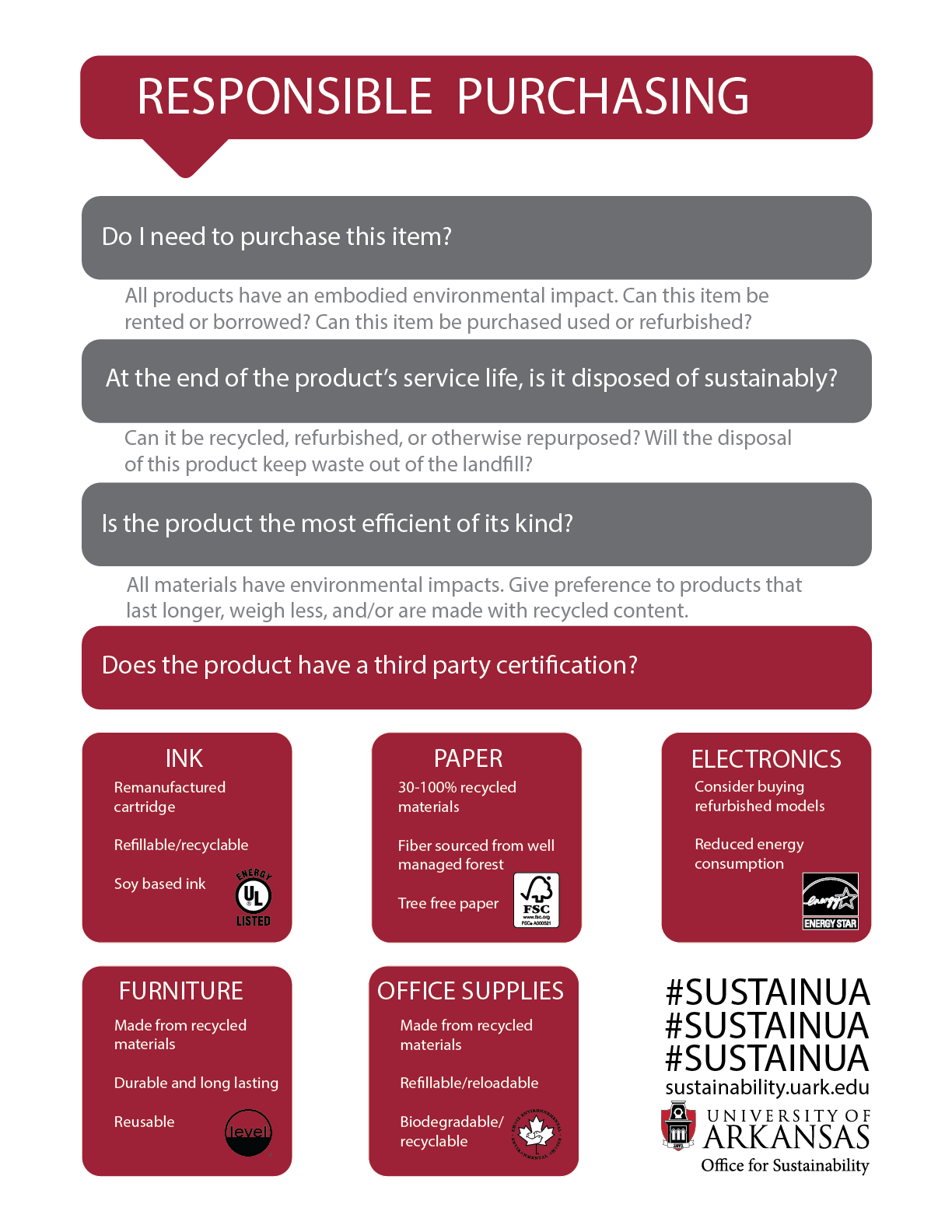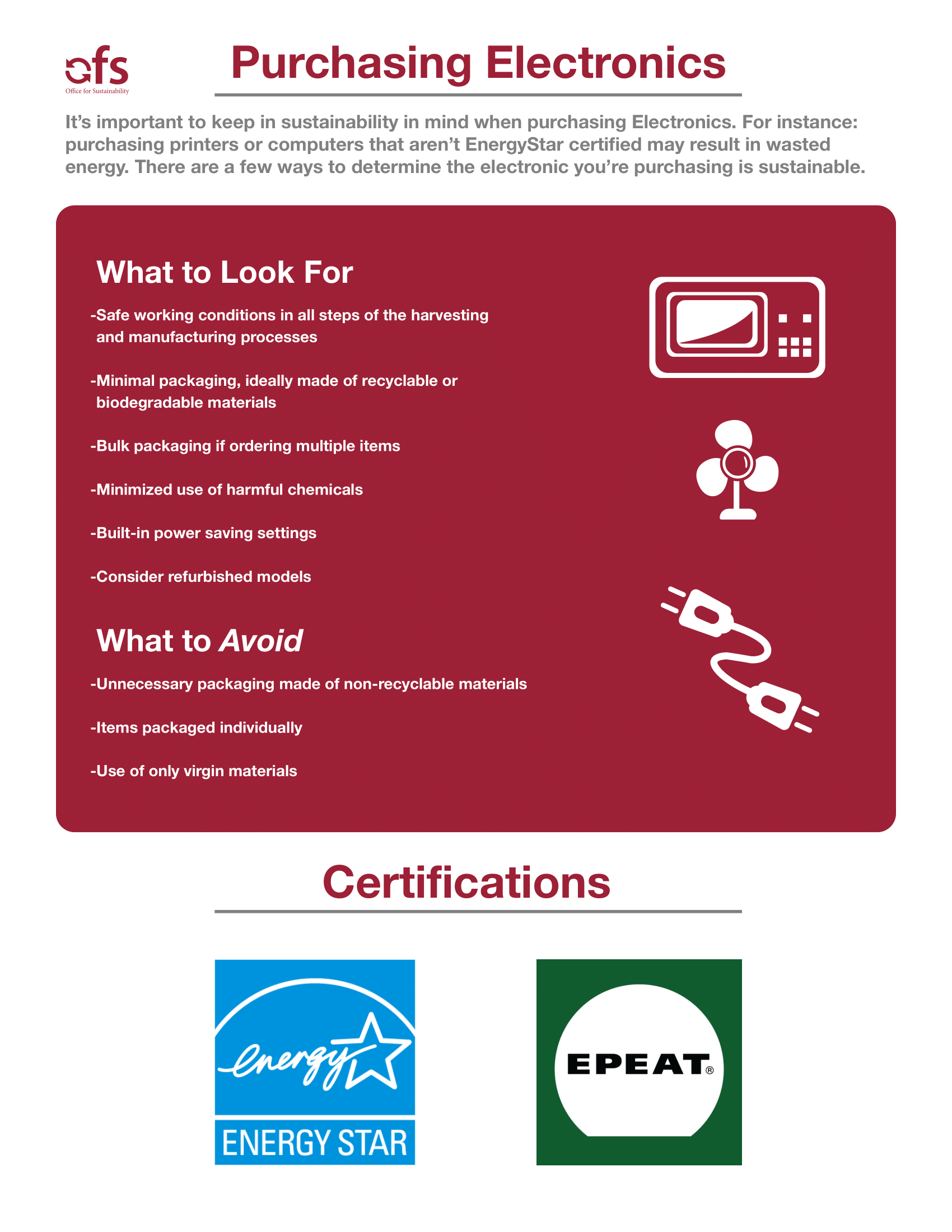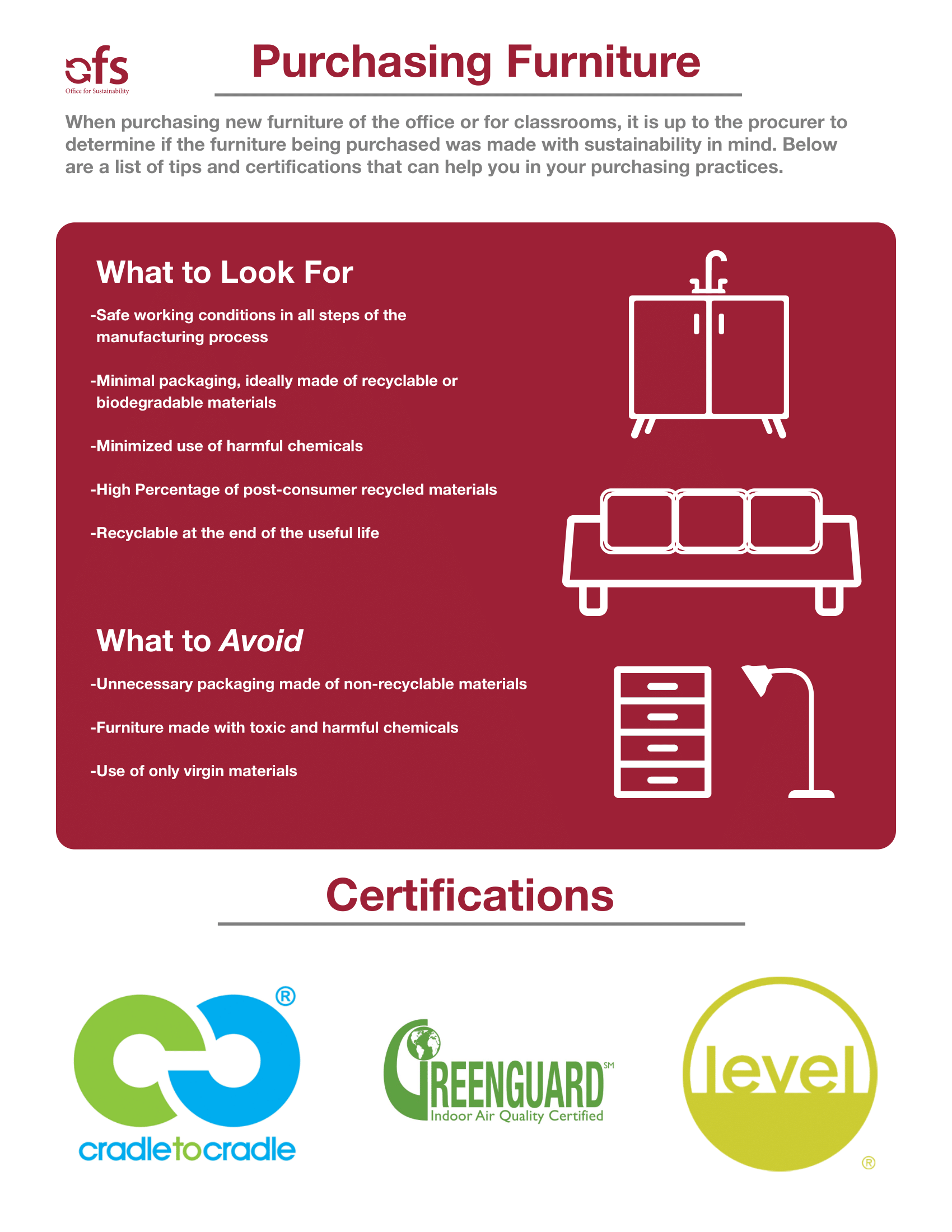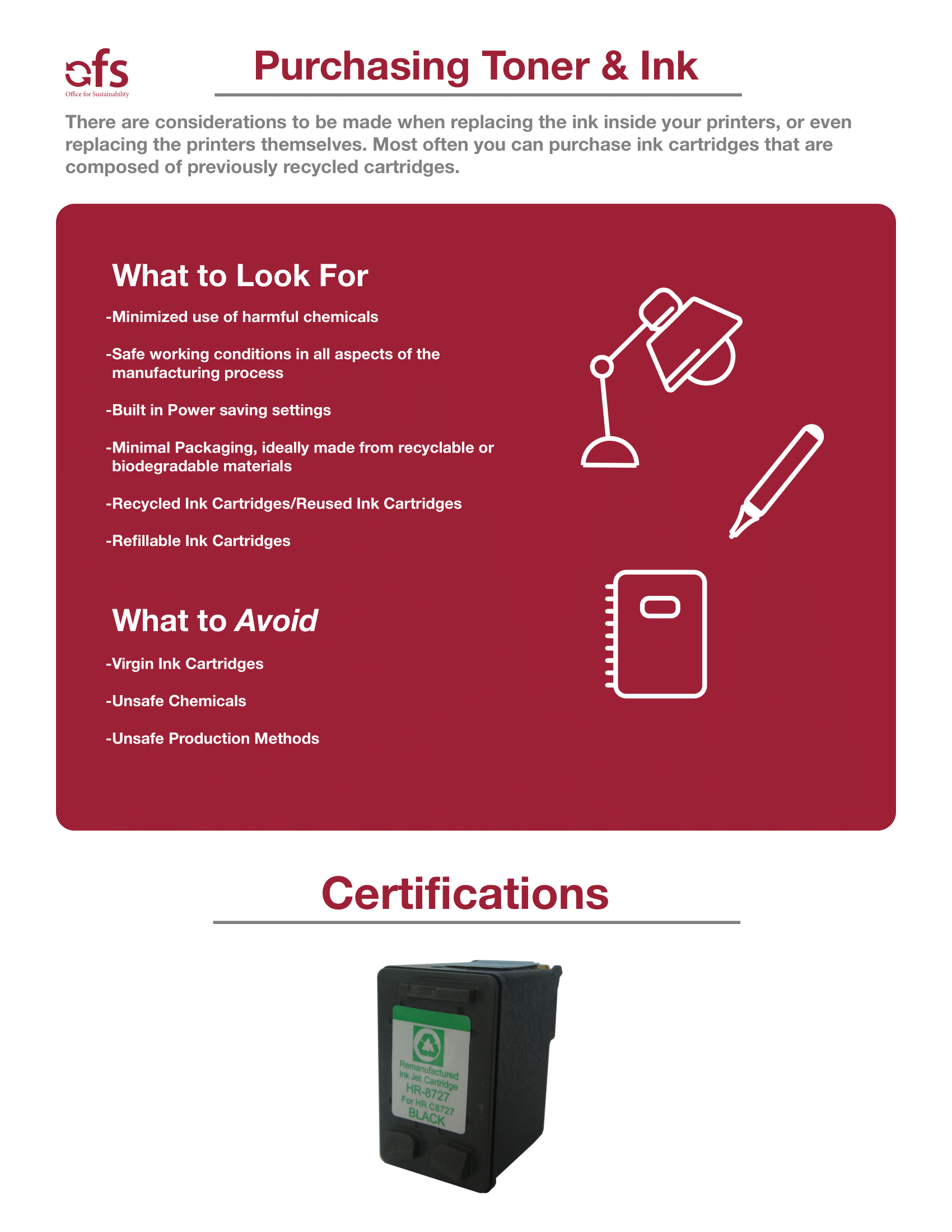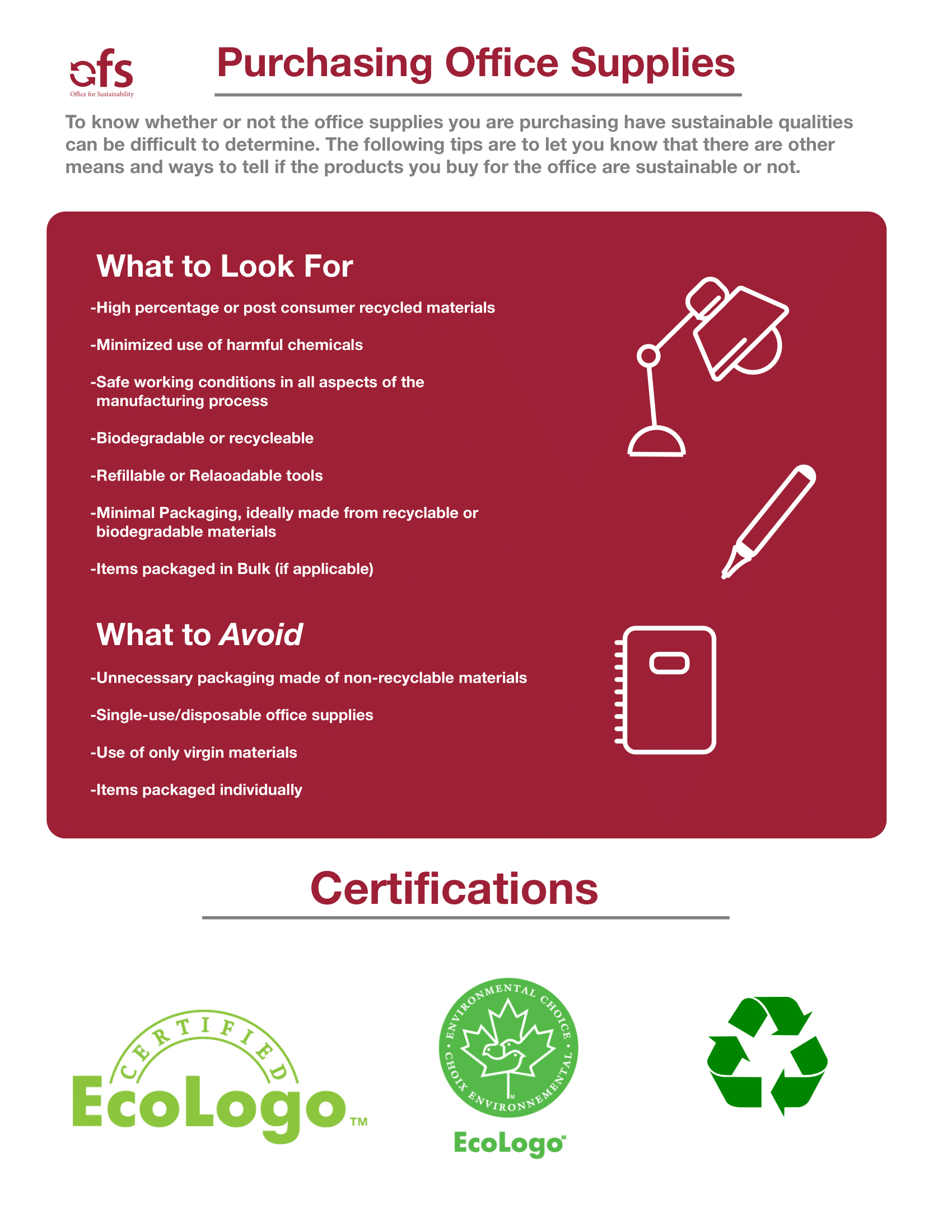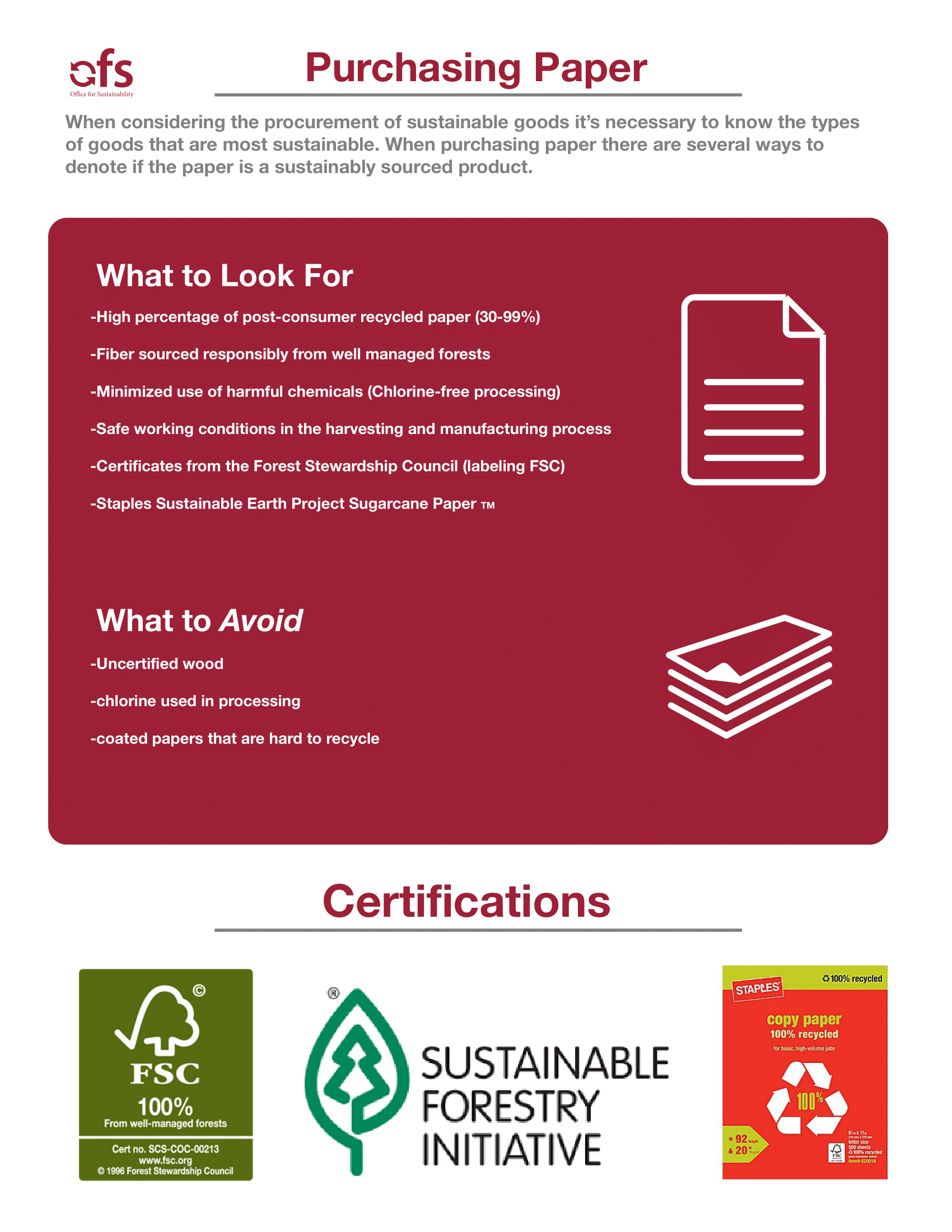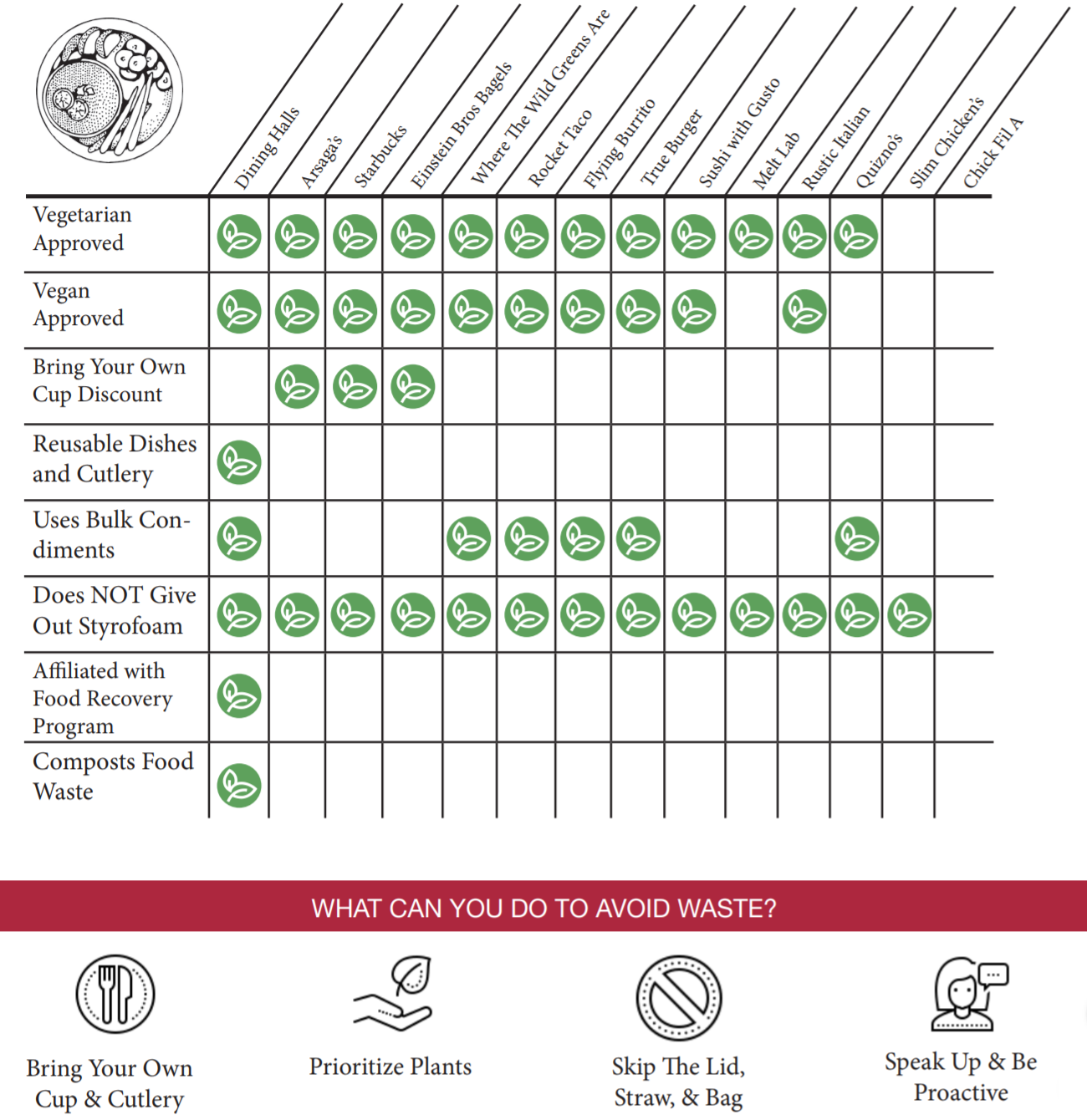WHAT IS AVERSION?
Aversion
a·ver·sion | əˈvərZHən \
noun
a tendency to extinguish a behavior or to avoid a thing or situation; in sustainability practices, aversion refers to waste prevention by avoiding consumption.
Example: Today I practiced aversion by bringing a reusable coffee cup to the café!
While diversion (recycling, composting, etc.) has the spotlight in pop culture, aversion is a more efficient and sustainable practice. The UofA diversion goals are important, but ultimately we hope to lower the need to divert by raising our aversion rate.
Responsible purchasing Guides
In order to encourage our campus to become more responsible in our choices, the Office for Sustainability has created purchasing guides to help you make effective supply chain decisions. Click on the images to view a PDF.
Razorback Food Recovery
Razorback Food Recovery is a student-led program that works to recover surplus food and redistribute it to those in need. Their partnership with Chartwells Dining Services allows volunteers to collect unused food from campus retail and dining locations for donation to community agencies in an effort to address the issues of food waste and hunger. RFR started in February, 2014 and has since recovered over 130,000 pounds of food, in turn providing over 108,300 meals to people in need across the Northwest Arkansas area. To learn more, visit the RFR website.
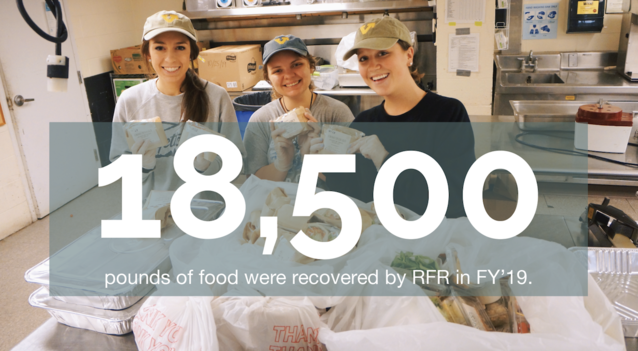
Guide to Green Dining
As a student, the on-the-go lifestyle can produce an undesirable amount of trash. The University of Arkansas has dedicated itself to becoming zero-waste by 2040, and the Office for Sustainability wants to help our students work toward the same goal. The most effective method to achieve this goal is to stop waste before it is distributed. To help students achieve this, The Office for Sustainability has prepared a guide detailing the zero-waste friendly policies of all of our on-campus dining facilities! Chartwells also has this great guide for vegan and vegetarian dining on campus!

